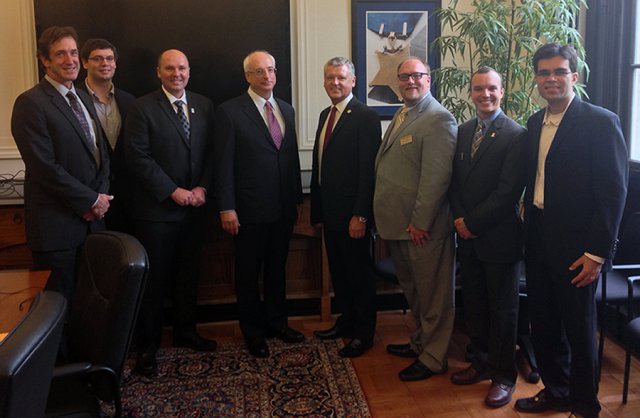Representatives from Embry-Riddle Aeronautical University – Worldwide have unveiled the 2014 Real World Design Challenge scenario. High school students participating in this year’s challenge will tackle a scenario that focuses on the design and implementation of an unmanned aircraft system (UAS) to increase food production for the world’s growing population through precision agriculture.
Over the next few months, teams will provide a solution to the challenge and be judged at the state level. A winner will be selected at the national finals in November 2014. The competition is free to enter, and teachers will receive $1 million in professional engineering software along with training, curriculum materials, and access to mentors. Each member of the winning team will receive a $50,000 scholarship to attend any one of Embry-Riddle’s three campuses.
“Embry-Riddle Worldwide is honored to be involved with the Real World Design Challenge on several levels this year,” says Embry-Riddle Worldwide Chancellor, John R. Watret, Ph.D. “Our faculty has done an excellent job in developing a scenario that will promote critical thinking and problem solving in an interactive and experiential setting.”
Sinclair Community College in Dayton, Ohio, provided support to this year’s challenge development through the college’s UAS Training and Certification Center.
The Real World Design Challenge is an annual high school competition run by a public-private partnership with the goal of sustainably increasing the Science, Technology, Engineering, and Mathematics (STEM) workforce. The partners are focused on working within the context of the American educational system to transform STEM education in the United States by providing professional science and engineering and learning resources to students and teachers.
Since 2008, the Real World Design Challenge has engaged more than 12,000 students nationally.
“The Embry-Riddle design team has helped to take the Challenge to a whole new level,” says Ralph Coppola, president and founder of the Real World Design Challenge. “This will allow us to raise the academic quality of the experience for the teachers and students. Consequently, we will be more effective in building the STEM workforce.”
Source: Press Release

